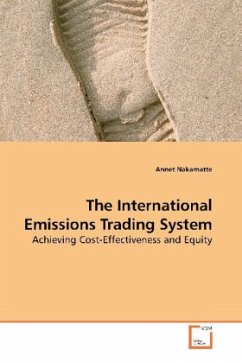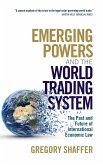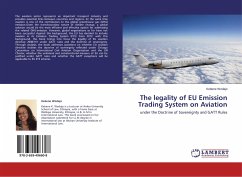Climate change is one of the greatest environmental challenges facing today s world. The United Nations Framework Convention on Climate Change and the Kyoto Protocol aim at enabling the State Parties to mitigate and adapt to climate change, although they recognize that this will be very costly. Therefore, the Kyoto Protocol contains flexibility mechanisms such as international emissions trading, with the goal of enabling the Parties to achieve their targets at the least possible cost. This book explores the viability of the international emissions trading system in helping the State Parties to achieve cost-effectiveness and the question of whether the system will address the issue of equity which arises with climate change. It proposes ways through which equity can be incorporated into the climate change regime and more specifically, into the international emissions trading system. The book is useful for people interested in climate change issues and especially those involved in the making of climate change policy.








